Keen to live off the grid? This couple from Karnataka shows the way
Sure that there's more to life than merely crunching numbers, Anjali Rudraraju and Kabir Cariappa chose to move closer to nature and are encouraging others with their Community Supported Agriculture initiative.
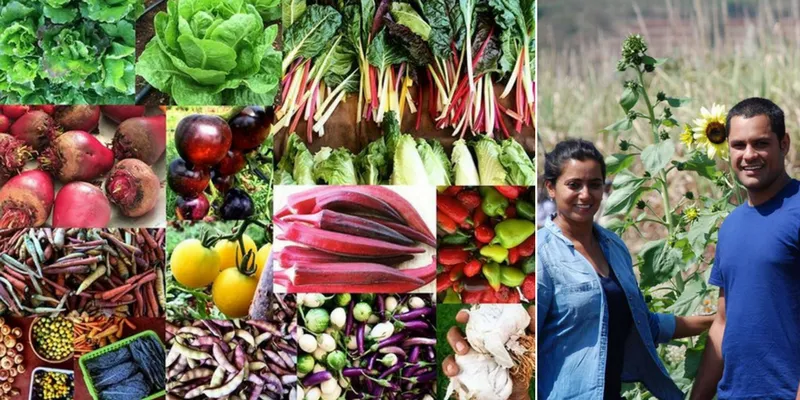
Living amid nature, growing your own food and enjoying a life of leisure - most urban dwellers dream of a life like this. But a couple from Karnataka is living the dream.
Not far from the city of Mysuru, in Halasuru village of Kote Taluka in Karnataka, Anjali Rudraraju and Kabir Cariappa have created their own little slice of paradise - Yarroway Farm.
Anjali, a management graduate from Hyderabad, did her master’s course in New York and worked in the financial services sector for almost a decade.Her tryst with the corporate world ended up driving her closer to nature.
We both love living a simple life on a farm, off the grid on a beautiful piece of land, growing good food and bringing our next generation into this kind of living space. We have animals around us and have created an environment where you can live and learn a lot from nature and the land, she says.
This journey wasn’t really veering off course for Kabir, a second generation farmer who grew up on an organic farm and was homeschooled by his parents. He sees a farm as a living entity, and regards the work involved as fun; all it requires is “patience and concentration”.
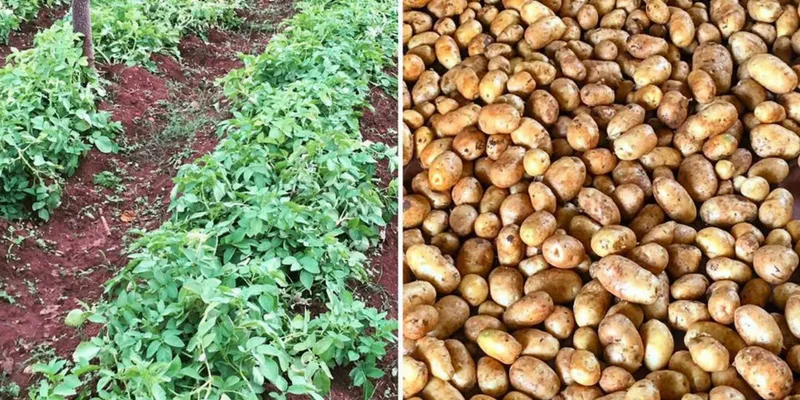
But it wasn’t that easy for Anjali. Although she grew up around farms in Hyderabad and her ancestral village in Andhra, she had no hands-on experience in working with soil and understanding growing patterns. This led her to attend training programmes in biodynamic farming and eventually run her Hyderabad farm the organic way.
There was not much unlearning to do for her, but convincing her crew to unlearn conventional farming methods was a challenge.
Starting from scratch and training everyone around me was a big challenge. In the early days, given the fact that I just got training, building trust and having the land respond to biodynamic practices took some time.But when the results started showing, there was no looking back, Anjali says.
Her experience in management and marketing is being applied at Yarroway Farm, but at a sustainable level, not to turn it into a corporate enterprise.
Tending to Yarroway
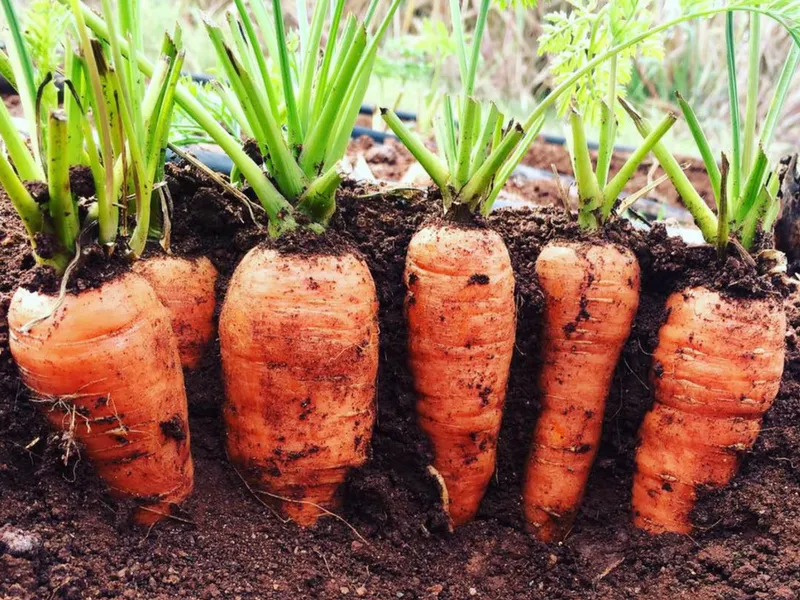
The couple now strongly believes in the “regenerative form of agriculture where the farm is a living entity that interacts with the environment and its beings, to build healthy living soil, and to produce food that nourishes mankind”.
We feel that all organic and natural practices preach caretaking of soil and the preservation of biodiversity. We follow a hybrid of all the practices we have learned over the past years, continually moulding our ways of farming to suit the changing environment, Anjali says.
Read More:
Scientists from Bengaluru will now grow forests using drones
This 63-year-old farmer from Manipur is growing 165 types of rice
Kabir, meanwhile, had the opportunity to learn farming skills growing up. He developed a lot of self-sustaining and mechanical skills in the process. During his teenage years he attended a training course on biodynamics and started applying them on their land.
Although biodynamic farming methods are practised at Yarroway, Anjali and Kabir also make other compost such as panchagavya and ash nutrients, depending on the crops, season and soil situation.
Self-sustenance is the way ahead
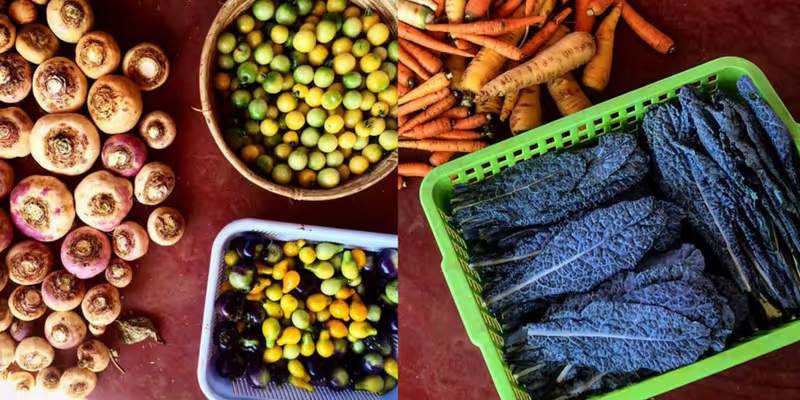
Yarroway grows a wide variety of crops every year, given the mild weather and fertile soil. Most of the land is rain-fed and they take advantage of the early monsoon rain the region receives at the end of April. The wide variety of crops grown at the farm includes sugarcane, cotton, oil seeds (sesame, sunflower, peanuts, safflower), millets (ragi, bajra, jowar, foxtail, etc.), grains (rice, wheat, buckwheat), seeds (flax, chia), pulses (toor, urad, moong), herbs (culinary and medicinal), and spices (turmeric, ginger, chilli, coriander, fenugreek, mustard).
As a family, we are fully sustainable. We buy very few products from outside since such a wide range of produce comes from within the farm. We keep our own seed and sustain production every year. Some products such as coffee, tea and spices, we buy from other organic farms that belong to family and friends. A few products we buy locally at the village level, Anjali says.
The family’s shopping list usually only has a few entries such as salt, pasta, natural detergent and fuel.
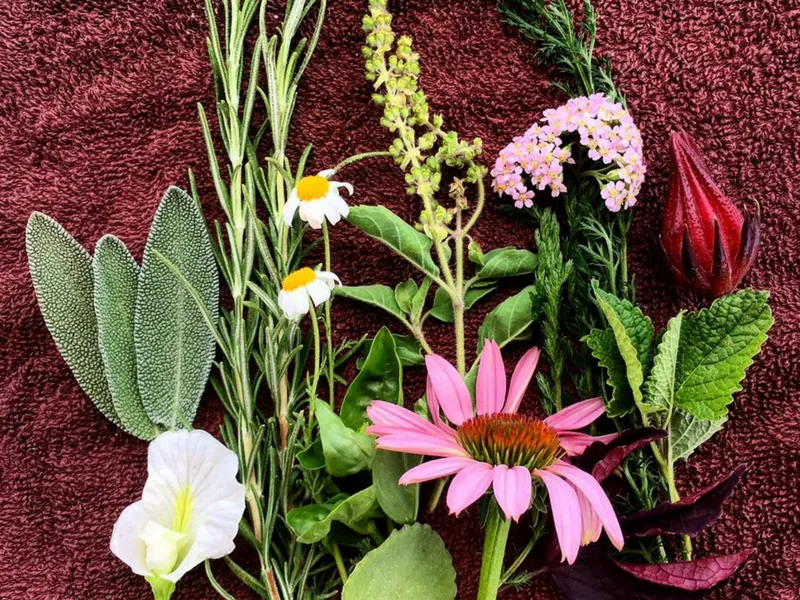
Yarroway runs a weekly CSA (Community Supported Agriculture) initiativefor selling fresh vegetables to nearby cities such as Mysuru and Bengaluru. This way, they reach out directly to the end consumer. A few organic stores in Kerala and Karnataka also buy from Yarroway.
“Moving away from city life, closer to nature and getting off the grid was a life-changing process. People often question how we do it. We do not miss the city life, but I maintain a balance with my family in Hyderabad. Some days, especially when nature controls everything, are challenging, but we learnt to let it go and enjoy the transition with time. The overall bigger picture made sense. How we want to live our life and what choices we can give to our next generation. That’s what keeps us going,” Anjali says.
Enter the SocialStory Photography contest and show us how people are changing the world! Win prize money worth Rs 1 lakh and more. Click here for details!







